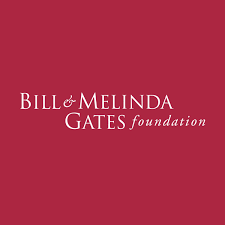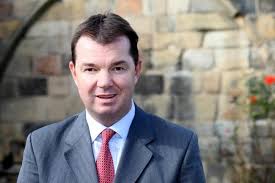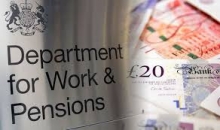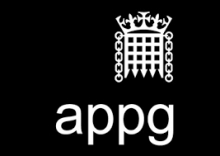Work TV
Watch our TV Channel dedicated to the ‘World of Work’. Explore our video library for informative videos featuring career opportunities at leading companies, franchising opportunities, further education and recruitment professions and their services.
Simon Collyer
Twelve Million Syrians Now in The Grip Of Hunger, Worn Down By Conflict And Soaring Food Prices
CAIRO – A record 12.4 million Syrians - nearly 60 percent of the population - are now food insecure, according to alarming new national data from the UN World Food Programme (WFP). In just over one year, an additional 4.5 million Syrians have become food insecure.
An economic crisis, job losses as a result of COVID19 and soaring food prices have added to the plight of Syrians who have been displaced and worn down by a decade of conflict.
“The situation has never been worse. After ten years of conflict, Syrian families have exhausted their savings as they face a spiralling economic crisis,” said WFP Representative and Country Director in Syria Sean O’Brien.
Basic foods to feed a family for a month – bread, rice, lentils and oil and sugar- now cost at least 120,000 Syrian Pounds [US$234] which far exceeds the average salaries.
“It is alarming that a simple meal is beyond the reach of families across Syria, and this new data shows humanitarian assistance is the difference between putting a meal on the table and going to bed hungry. Lifesaving support has never been so crucial,” said O’Brien.
The 2020 Food Security and Livelihoods Assessment carried out by WFP and partners, also estimates the number of people who are severely food insecure – meaning they cannot survive without food assistance – has doubled in just one year to stand at 1.3 million people. Unless urgent action is taken, an additional 1.8 million people are at risk of falling into severe food insecurity.
Over the last year food prices across Syria have soared, and the price of basic items has increased by 236 percent , just as the value of the Syrian Pound has plummeted. On average, the price of oil has increased from 1000 Syrian pounds in Jan 2020, to 5000 Syrian pounds in Jan 2021.
Parents now report making desperate decisions to survive, eating less food so they can feed their children, going into debt, and selling assets and livestock to generate an income. In addition, close to 50% of the Syrian population report having lost one or more sources of income because of the economic downturn and the Covid19 pandemic.
Each month WFP provides lifesaving food assistance to almost 5 million of Syria’s most vulnerable people. For many, this is the only food they eat each month.
WFP requires an additional US$375.3 million until July 2021 to ensure continued assistance throughout Syria.

Image: Syrian War causing hunger.
ABC Comment, have your say below:

Pension Budget Concerns
PENSIONS - News that changes to state pension regulations may be announced in the Spring Budget have caused some concern. The personal finance experts at money.co.uk have commented on how consumers can ensure they are prepared for any upcoming changes.
Salman Haqqi, personal finance expert at money.co.uk said: “In 2010, the UK government introduced a ‘triple lock’ for state pensions, in order to guarantee that the scheme would not lose its real world value over the coming years.
“However due to the continued economic uncertainty caused by COVID-19, there has been some debate in parliament regarding the policy. There is current speculation from opposition MPs, claiming that a change to state pensions will be announced by Chancellor Rishi Sunak in the upcoming spring budget.
“Under current regulations, you will receive different amounts depending on whether you get the new state pension or the basic state pension. Which State Pension you are eligible for is based on when you were born and when you retire.
“If you’re a man born before 6 April 1951 or a woman born before 6 April 1953, have been paying National Insurance for 30 years, and reach State Pension age before the 6th of April 2016, you would get the full basic State Pension of £134.25 a week.
“However, if you’re a man born after 6 April 1951 or a woman born on or after 6 April 1953, have been paying National Insurance for 35 years, and reach State Pension age after 6 April 2016, then you’d receive the full new State Pension of £175.20 a week.
“Currently, the triple lock on the state pensions means it will increase in line with inflation (or by 2.5%, whichever is higher). However given the ageing population in the UK, some believe this promise is unsustainable in the long term.”
“With the Spring Budget announcement just weeks away, it is essential that those relying on a state pension keep up to speed with any changes made by the Chancellor, in order to safeguard their income.”
ABC Comment, have your say below:

UK Ban on Bailiff-Enforced Evictions in England Extended To End Of March
RENTERS - will continue to be supported during the ongoing national lockdown restrictions, with an extension to the ban on bailiff evictions.
Renters will continue to be supported during the ongoing national lockdown restrictions, with an extension to the ban on bailiff evictions, Housing Secretary Robert Jenrick announced (15 February 2021).
The ban on bailiff evictions - which was introduced at the start of the pandemic - has been extended for another 6 weeks - until 31 March - with measures kept under review in line with the latest public health advice.
Exemptions remain in place for the most serious circumstances that cause the greatest strain on landlords as well as other residents and neighbours, such as illegal occupation, anti-social behaviour and arrears of 6 months’ rent or more.
The measures are part of a wide-ranging package of support the government has provided to protect renters from the economic impact of the pandemic, including supporting businesses to pay staff through the furlough scheme and strengthening the welfare safety-net by billions of pounds.
Landlords are also required to give 6-month notice periods to tenants before starting possession proceedings, except in the most serious circumstances, meaning that most renters now served notice can stay in their homes until at least August 2021, with time to find alternative support or accommodation.
For those renters who require additional support, there is an existing £180 million of government funding for Discretionary Housing Payments for councils to distribute to support renters with housing costs.
The package of support is reducing the number of evictions as applications to the courts for possession by private and social landlords were down 67% between October and December 2020, compared to the same quarter in 2019. The number of repossessions recorded October to December 2020 was down 93% compared to the same quarter in 2019. Only 548 repossessions were recorded between April and December 2020 compared to 22,444 in the same period in 2019.
The government previously changed the law in England to ensure bailiffs do not enforce evictions for 6 weeks until 22 February. This has now been extended for a further 6 weeks until 31 March. This will be kept under review.
The only exceptions to this are for the most egregious cases – anti-social behaviour, illegal occupation, death of a tenant where the property is unoccupied, fraud, perpetrators of domestic abuse in social housing and rent arrears equivalent to at least 6 months’ rent.
Guidance to support landlords and tenants in the social and private rented sectors understand the possession action process and new rules within the court system in England and Wales is available.
The National Residential Landlords Association chief executive, Ben Beadle, warned the announcement was storing up future problems.
He said 800,000 private renters have built up arrears since the ban came into force, which they would struggle to ever pay off.
“It will lead eventually to them having to leave their home and face serious damage to their credit scores,” he said.
“The government needs to get a grip and do something about the debt crisis renters and landlords are now facing.
“A package of hardship loans and grants is needed as a matter of urgency. To expect landlords and tenants simply to muddle through without further support is a strategy that has passed its sell-by date.”
ABC Comment, have your say below:

Bill & Melinda Gates Foundation Help Diconsa To Offer Financial Services In Rural Mexico
MEXICO CITY -- Diconsa has launched a program to offer financial services to low-income, rural Mexican families through its nationwide network of 22,500 rural stores. The program, supported by a $3.6 million grant from the Bill & Melinda Gates Foundation, aims to reach thousands of rural communities that currently lack access to even basic financial services.
“By delivering cash transfers and other financial services in Diconsa stores, we will be able to improve the quality of life of Mexico’s most isolated communities as well as to promote local economic development,” explains Max Henderson, Diconsa’s Director of Commercialization. “Diconsa’s unparalleled coverage among rural communities has not been sufficiently explored for offering additional services to the community. This is particularly important in a country where less than 15 percent of rural families use the financial system.”
During the initial phase of the program, Diconsa is laying the groundwork for a transactions system, to distribute Oportunidades payments, Mexico’s main social benefits cash transfer program. Diconsa is partnering with the Oportunidades program to distribute the bi-monthly cash payments to qualifying families in exchange for compliance with the program’s conditions, such as keeping children in school.
Currently, many cash transfer beneficiaries must travel great distances to distribution centers to collect their payments in cash. Diconsa’s network allows recipients to receive their payments in their community, significantly reducing travel time and associated costs, such as food, transportation and missed labor. Additionally, communities will profit as beneficiary spending shifts from larger towns where they collect payments to where they live.
![]()
Image: Diconsa
In subsequent stages, Diconsa plans to allow financial institutions to offer safe savings and other quality financial services through the Diconsa network. These efforts will reach populations that previously were excluded from the financial system.
“Financial services are powerful tools to help people build financial security, so they can manage life’s risks and take advantage of life’s opportunities,” said Carlos Cuevas, Deputy Director for the Financial Services for the Poor initiative at the Bill & Melinda Gates Foundation. “Diconsa takes a cost-effective, sustainable approach that has long-term potential to help millions of rural poor people in Mexico better their lives. This model could eventually be shared with other developing countries, which face similar challenges to providing financial services.”
The Diconsa network reaches marginalized communities of less than 2,500 people in the most rural areas of Mexico. As an agency of the government’s Ministry of Social Development (SEDESOL), Diconsa serves the rural poor by providing an affordable food supply, nutritional assistance, social assistance, help in response to natural disasters, and a safety net for grain price increases.

The grant also includes an evaluation component that will assess the impact of offering financial services for the rural poor through innovative partnership models. It will also identify lessons learned to help in replication and adoption of financial services in other situations and countries.
This grant is part of the foundation’s Financial Services for the Poor initiative, which is working with a wide range of public and private partners to harness technology and innovation to bring quality, affordable savings accounts and other financial services to the doorsteps of the poor in the developing world. The foundation believes that setting aside small sums in a safe place allows people to guard against risks, build assets, and provide opportunities for the next generation.

ABC Comment, have your say below:

Landmark Moment for UK Pensions as Bill Receives Royal Assent
PENSIONS - The Bill, now an Act, will bolster protections for savers and further the government’s green agenda by supporting progress towards net zero.

Image: Minister for Pensions, Guy Opperman, said:
This is a historic day for UK pensions, and I’m thrilled that after more than 12 months, amidst all the challenges we’ve faced, the Bill has now received Royal Assent.
This Act makes our pensions safer, better and greener, as we look to build back better from the pandemic. Its passage will reassure savers that they can, and will, have a retirement they deserve.
The Act will strengthen protections for pension savers by extending the powers of the Pensions Regulator, introducing the power to issue civil penalties of up to £1 million, alongside three new criminal offences.
A tough new sentence has been created - with a maximum penalty of seven years in prison - for bosses who run pension schemes into the ground, or plunder pots to line their own pockets. This will deter employers from making reckless decisions with their defined benefit schemes and strengthen the regulators’ powers to take efficient and timely actions to protect members’ hard-earned savings.
The introduction of pensions dashboards will hail a digital revolution for savers, creating one single platform to more easily access and review pension pots. Savers will be able to see how much they can expect each month in retirement, and find out how they can improve their retirement prospects.
The Act ensures pensions play their part in our transition to a net zero future through climate risk reporting, and changes to requirements around pension scheme funding to improve financial sustainability.
The Act also legislates for the creation of a new style of pension scheme - Collective Defined Contributions (CDCs). Developed in cooperation with trade unions, CDCs have the potential to increase returns for millions, whilst being more sustainable for both workers and employers.

Image: Robert Maxwell forever associated with the Mirror pension fund.

FCA Finds Covid-19 Leaves Over A Quarter of UK Adults With Low Financial Resilience
FINANCIAL - The Financial Conduct Authority (FCA) has released its latest Financial Lives survey (FLS), looking at consumers’ financial situations, the financial products they choose and their experiences of engaging with financial services firms.
The FCA concluded its FLS research in February, and ran an extra survey in October in order to understand the impact of the Covid-19 pandemic on the financial situation of consumers.
According to the October survey, there are now 27.7 million adults in the UK with characteristics of vulnerability such as poor health, low financial resilience or recent negative life events. Having one of these characteristics means that these consumers are at greater risk of harm. This figure is up 15% since the FCA completed its FLS in February, when 24 million displayed characteristics of vulnerability.
Commenting on the findings, Nisha Arora, Director of Consumer and Retail Policy at the FCA said:
“The Financial Lives survey is fundamental to the work we do as a regulator, enabling us to hear directly from consumers across the UK.
“While there are some positives in the data, many of the findings are worrying. Since the start of the pandemic, the number of people experiencing low financial resilience or negative life events has grown. The pain is not being shared equally with a higher than average proportion of younger and BAME adults becoming vulnerable since March. It is likely the picture will have got worse since we conducted the survey.
“Vulnerability remains a key focus for the FCA, and has been brought into sharp relief by the pandemic. We continue to work with the wider financial services sector, including businesses, regulators and government to support and protect consumers. We expect to finalise our guidance on how firms should treat vulnerable customers shortly.”
The FCA found that the number of consumers with low financial resilience – meaning over-indebtedness or with low levels of savings or low or erratic earnings – has grown. Over the course of 2020, the number of UK adults with low financial resilience increased from 10.7 million to 14.2 million.
Highlighting the threat to people’s incomes from the pandemic, in October one in three (30% or 15.9m) adults said they expect their household income to fall during the next six months, while 25% (13.2m) expected to struggle to make ends meet.
To cope with the hardships they expected to face, many adults reported that they were likely to cut back on essentials (33% or 17.5m) or to use a food bank (11% or 5.6m); 8.1 million (16%) expected to take on more debt. However, 48% of adults have not been affected financially by Covid-19, and 14% have actually seen an improvement in their financial situation.
Over the course of the pandemic, the FCA has worked with the financial sector and consumer bodies to help protect consumers with measures such as mortgage and credit payment deferrals. The report reveals the impact these measures have had with one in six (17% or 3.2m) mortgage holders having taken up a mortgage payment deferral and four in ten (40%) of them reporting they would have struggled a lot without such measures.
The Financial Lives survey provides insight into the financial lives of consumers, which the FCA and others use to understand the experiences of consumers, including those who are most vulnerable to harm and ensure that the right protections are in place. This is something which has been especially important as the economic toll of coronavirus (Covid-19) has continued to mount.
The FCA surveyed more than 16,000 people between August 2019 and February 2020. This was followed by a subsequent survey, with over 22,000 respondents, focused on the impact of the pandemic on consumers, conducted in October.
ABC Comment, have your say below:

Stay Safe this Chinese New Year Friday 12 February Say Essex Fire Brigade
CHINESE NEW YEAR - Celebrations will take place on Friday 12 February as people throughout the County mark the Chinese New Year and welcome in the Year of the Ox.
But while celebrations are going on it is important to take some simple precautions to ensure that all those enjoying themselves are as safe as possible from the risk of fire.
Area Manager Jim Palmer said: "We want everyone to have a happy and enjoyable Chinese New Year but everyone needs to be aware that at times of celebration when more cooking takes place and people are often too busy enjoying themselves, it's even more important to pay attention to fire safety.
"Fireworks are also an important part of the celebrations and they, of course, pose their own risks. We have a dedicated page for firework fire safety which we urge everyone to read.
"We understand that the New Year festivities are very special to the Chinese communities, as it is a period of good luck and starting afresh, but by taking just a few simple precautions you can greatly reduce the risks for yourself and your family."
Fit working smoke alarms on each floor level in your home. Consider buying an alarm with a ten year battery, otherwise change the battery every year in your alarm and test all alarms once a week.
Treat fireworks with great caution. Only buy fireworks marked with British Safety Standard 7114 and always read and follow the instructions.
At all times, keep flames from candles at a safe distance from curtains, furniture and decorations. Long hair and clothing are also very flammable. Keep the flame out of reach of children and animals. Children should be supervised at all times near flames.
When cooking deep-fried food, dry it before you put it in the hot oil. If the oil starts to smoke, turn off the heat and leave the pan to cool. Never fill the pan more than one-third full of oil. Never throw water over the pan.
Avoid overloading electrical sockets. Try to remember, one plug - one socket. If you must have more plugs connected always use a fused adaptor.

ABC Comment, have your say below:

USA Slam the Scam Day Announced
SLAM THE SCAM - In the US scammers are using the COVID-19 pandemic as an opportunity to file fraudulent unemployment claims, often using someone else’s identity. Scammers may even use the identity of someone who is receiving or applying for Supplemental Security Income (SSI) benefits.
SSI applicants and recipients who begin to receive—or seemingly begin to receive—State Unemployment Insurance (UI) benefits could appear to be ineligible for SSI benefits. They could even appear to be overpaid because of an unemployment claim filed in their name.

These UI fraud schemes are widespread and affect most states. The United States Secret Service is investigating more than 500 claims in over 40 states related to unemployment fraud.
At Social Security, they are taking steps to verify whether SSI applicants and recipients are victims of UI fraud. We will not reduce or terminate your payments due to a fraudulent unemployment claim. If you suspect you may be a victim of fraud, report it to your state fraud hotline. You may also report suspicions of fraud to your local unemployment office.
The Inspector General for the Social Security Administration (SSA), Gail S. Ennis, is designating Thursday, March 4, 2021 as the second annual National “Slam the Scam” Day, to raise public awareness of government imposter telephone scams, which continue to spread across the United States. This is part of National Consumer Protection Week, February 28.

ABC Comment, have your say below:

Cross-Party Group of MPs Has Urged The UK Government To Maintain The £20 Uplift To Universal Credit
UNIVERSAL CREDIT UPLIFT - A cross-party group of MPs has urged the UK government to maintain the £20 uplift to Universal Credit and extend it to legacy benefits “in order to avoid a two-tier social security system.”
The All-Party Parliamentary Group on Poverty, which is co-chaired by Neil Gray MP, has also called for a suspension of the benefit cap for the duration of the pandemic, which would enable all low-income households to benefit from the £20 uplift.
This comes after a growing backlash from the third sector towards the Tory government for failing to oppose plans to cut the Universal Credit uplift in a vote.
While the SNP voted against the cut to Universal Credit, which comes into force in April, Scottish Tory MPs abstained - despite Douglas Ross previously backing an extension uplift.
Co-Chair of the All Party Parliamentary Group on Poverty, Neil Gray MP, said:
“This is a significant intervention from a cross-party group of MPs, including Tory MPs, which warns that slashing social security payments in the middle of an economic crisis and a global pandemic could push more people into poverty at the worst possible time.
"There must be a U-turn on this, to avoid worsening poverty and inequality across the country during this crisis - and the Chancellor must commit to this immediately so that people are given certainty in the coming months.
“It is crucial that the £20 uplift to Universal Credit is made permanent and extended to legacy benefits, as part of a wider package to boost incomes after a decade of damaging Tory austerity cuts.
“Scotland shouldn't have to wait for Westminster to act. This Tory government’s repeated failures on tackling poverty have proven that the only way to secure a strong, fair and equal recovery is for Scotland to become an independent country.”
ABC Note:
Officers of the APPG on Poverty as at February 2020
- Kevin Hollinrake MP – Co-Chair
- Neil Gray MP – Co-Chair
- Afzal Khan MP – Vice-Chair
- Baroness Ruth Lister – Vice-Chair
- Lord Bird – Vice-Chair
- Lyn Brown MP – Vice-Chair
- Tony Lloyd MP – Vice-Chair
- Baroness Christine Blower – Member
ABC Comment, have your say below:

Understanding DWP Advances and Emergency Help
BUDGETING LOANS - We enquired to our Member of Parliament and DWP Minister, how it is that some people can have two budgeting advances on Universal Credit while others only have one.
The allowance is up to £348 for a single person but if you have paid much of this loan back and now only owe £50, why should you net get a second loan in an emergency?
This is the response from the DWP.
On the matter of when Universal Credit payments are sent to those entitled, it is set very strictly in line with their Assessment Period. The Assessment Period begins on the very date someone makes a claim to Universal Credit and lasts for one month. For example - 05/01/2021-04/02/2021. This cycle would continue for every month that follows (05/02/2021-04/03/2021 etc) and any entitlement that is calculated on the end of each period would be paid 7 days later. We have worked closely with Social and Private landlords in the local area to make them aware of how this can impact tenants in respect to managing their bills.
There are 4 types of advance under Universal Credit, as follows:
- New Claim Advance - Available to those in need in the first two Assessment Periods of their claim. Mr Collyer has passed this threshold.
- Change of Circumstances Advance - Available to those who have had a verified change in their circumstances that would increase their monthly entitlement of Universal Credit.
- Benefit Transfer Advance - Available to those who have transferred onto Universal Credit from a previous benefit (i.e. Job Seeker's Allowance), and is only available for their first Assessment Period. Mr Collyer is not eligible as he does not meet this condition.
- Budgeting Advance - Available for those who need help with domestic emergencies or for support upon the confirmation of a start date of employment. The policy with a Budgeting Advance is that if there is already one outstanding that has not been fully repaid, we are unable to offer a second. It is possible that someone may have a New Claim Advance and a Budgeting Advance open at the same time, but never two Budgeting Advances. This could be perhaps where Mr Collyer has understood people to have two advances at the same time.
ABC Comment, have your say below:
























